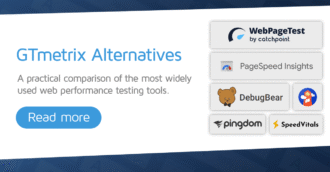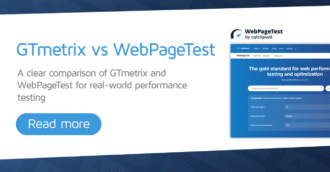“GTmetrix allows me to identify where low conversion rates are being caused by slow load times”
Overview
Making the most of Google Ads and improving conversion rates can involve a lot of testing and analyzing. It is possible to spend hours trying different headlines, call-to-action (CTA), colours, buttons, and images to test consumer behavior and try to get readers to click on an ad.
However, all this work may be for nothing if your site is plagued by slow load times.
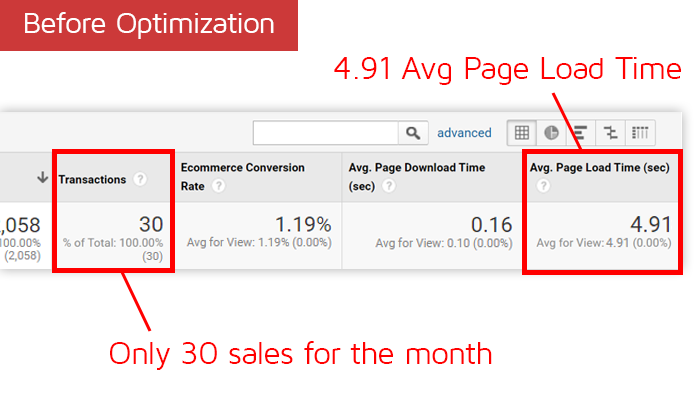
As a marketing professional, Founder and CEO of Yael Consulting, I often find that clients are overlooking the impact of load times on conversion rates. Fortunately, GTmetrix allows me to optimize my client’s ads while also identifying where low conversion rates are being caused by slow load times.
With GTmetrix, all interested parties can receive automatic alerts so that issues can be addressed quickly. This tool has allowed me to rapidly help clients convert website visits into sales.
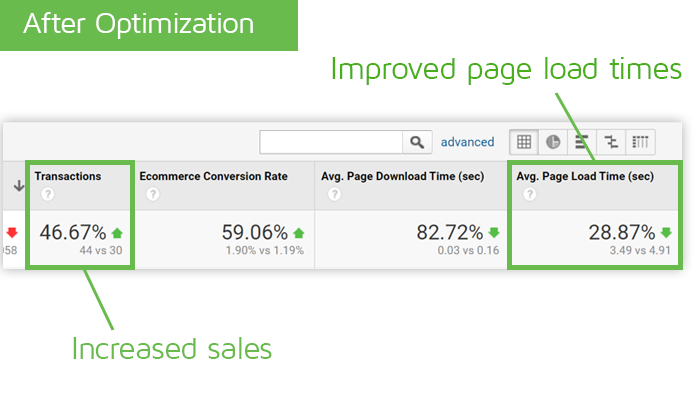
Let’s take a closer look at how load times affect conversions and how GTmetrix has provided an invaluable tool that supports marketing efforts.
Defining a Conversion
Before we get into the details of the fastest way to increase Google Ads conversion, let’s first define what we are considering a conversion.
There are options, such as “Call-Only” ads or “Google Ads extensions”, where a click triggers a direct phone call or message to the business, without ever visiting your website. I don’t address these conversions here.
Since most advertisers invest in conversions that happen on the website, this is where we have the biggest opportunity to increase our conversion rates – that, at the end of the day, results in more profit for your business.
Why Your Website Speed Matters
Online searchers have the attention span of a goldfish.
That gives you just seconds to capture their attention. On average, consumers spend less than 15 seconds on a website before they decide it is time to move on and look at your competitor’s site.
This is especially true when it comes to our mobile-driven business environment where many shoppers are browsing and making purchases on their phone.
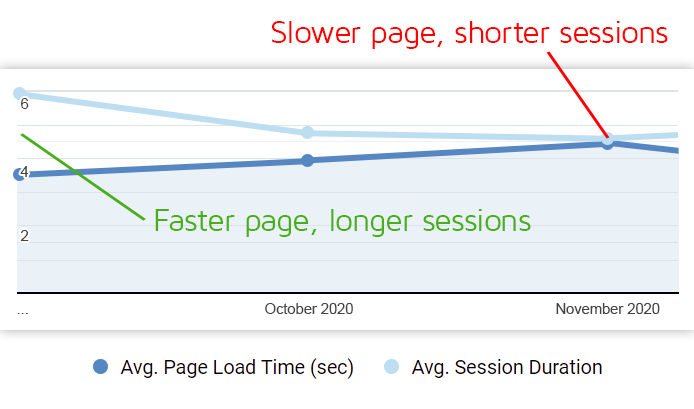
Imagine that your website takes a full 15 seconds to fully load. Even if you had the most optimized Google Ads account, and drove the best traffic to your website, you would never see the full fruits of your labour.
You’d lose most visitors’ business because they are not going to wait for your website to load and your Google Ads budget is going to waste.
If you want to improve your Google Ads conversion rates, quickly and easily (I know it’s a cliché, but I’ll prove it), it may be time to take a closer look at your website’s loading speed.
Use GTmetrix to Reveal Your Site Speed Problems
GTmetrix can provide you with a detailed look at your site speed from the user’s perspective and identify specific problems that should be addressed.
For example, here is a look at a report generated for a client:
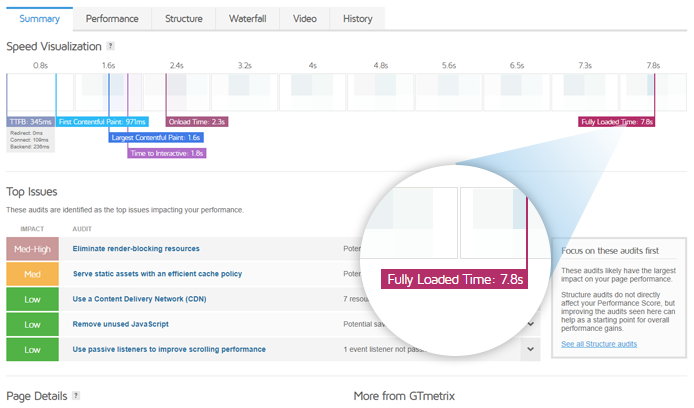
As you can see from the Speed Visualization in the Summary section, the page takes 7.8 seconds to fully load.
Here’s what we discovered when assessing their website’s performance.
Unoptimized images are often a cause of performance issues
Some of the most common causes of slow loading times can be traced back to media on the website.
For example, you may have images that are way too big. You can discover problematic images in a number of ways with GTmetrix:
1) Look at the relevant Structure audits
Look at the Structure tab and examine the “Avoid enormous network payloads”, “Efficiently encode images”, or “Properly size images” audits.
These audits can identify images that are unoptimized and can be reduced in file size for faster download speeds.
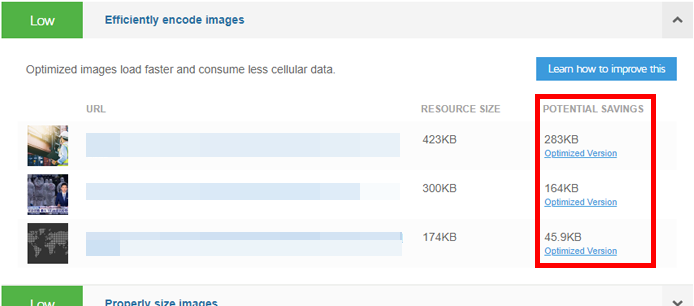
2) Inspect the Waterfall Chart
If you click on the “Waterfall” tab, and sort the images by size, you can instantly view problematic images and begin to make improvements.
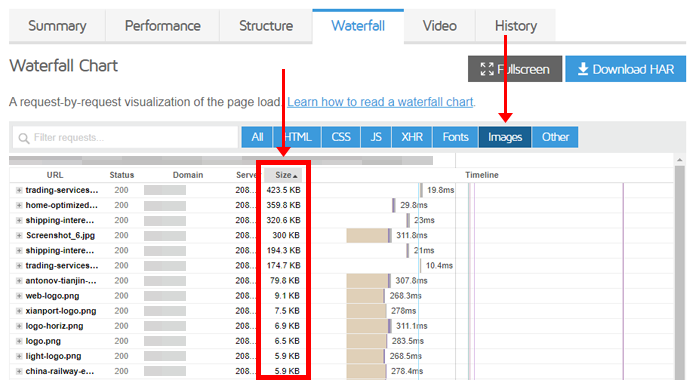
While image size issues are not the only reasons for a slow site, these fixes are low hanging fruits that many business owners can make. You do not have to be an expert web designer or coder to make many of these adjustments.
Offscreen images extend page load time
GTmetrix is also able to identify images that may be loading, but aren’t even visible to the user.
Images that load outside the main view of the user are wasteful – users load unnecessary data and your page load time may be extended.
You can find such images with the “Defer offscreen images” audit in the Structure section of your GTmetrix Report:
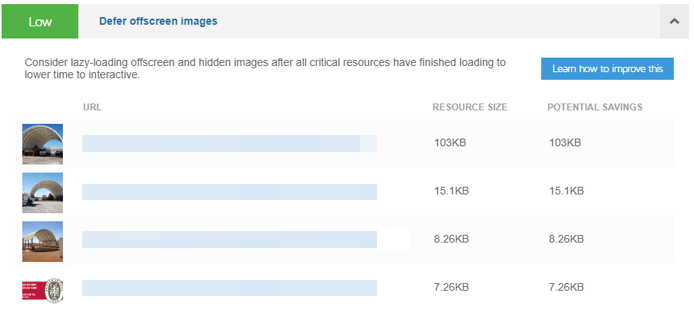
Utilize lazy-loading techniques to only load these images when the user scrolls to them in the browser.
Third-party video embeds increase requests and JavaScript execution time
Displaying a video with the YouTube or Vimeo embed code often introduces multiple additional scripts related to generating the player onto your site.
This can also increase JavaScript execution time and further delay your page load.

Removing these embeds, and linking the video in a static thumbnail image instead can dramatically improve load times.
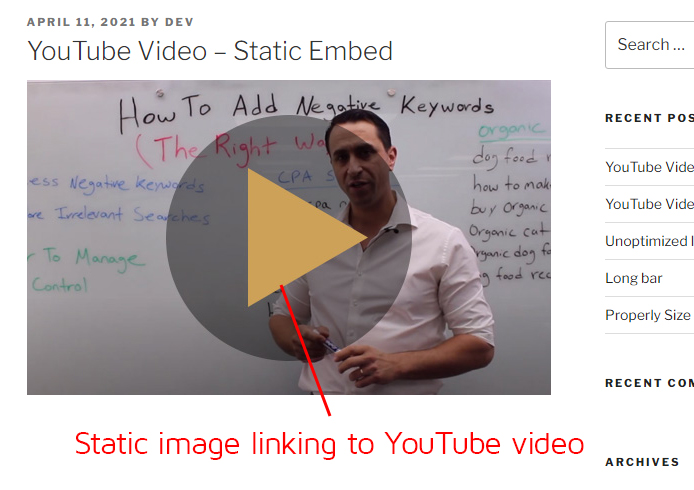
You can even initiate the video in a lightbox so that users don’t leave your page.
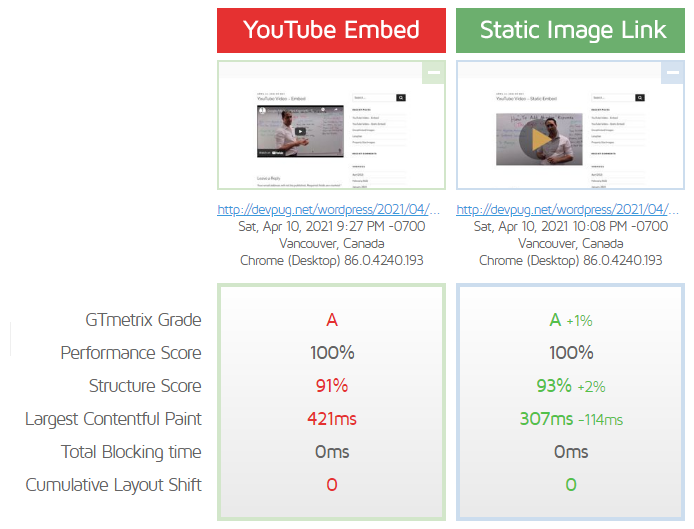
For most websites, this presents a great alternative to embedding third-party video players to your page.
The best way to improve your page speed and your conversion rates is to understand the current state of your website.
GTmetrix provides you with a detailed look at your overall performance as well as a closer look at specific causes so that you can begin to make meaningful changes without even having to open your Google Ads account page.
Client Case Study
Let’s take a look at how I was able to use GTmetrix to help a client improve conversions for a particular landing page.
Discovering the Problem
With GTmetrix, I was able to quickly identify the exact source of the problem using the Waterfall Chart.
In this case, there was an issue with a call to a third-party API, which extended landing page timings.
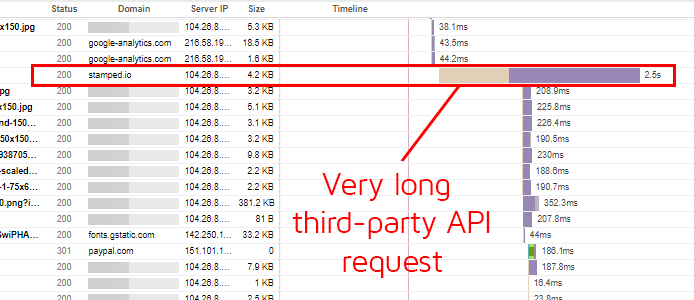
GTmetrix provided me with stats on exactly how the page was performing. In this case, Largest Contentful Paint and Total Blocking time performed poorly, likely due to this third-party API request.
By solely updating the third-party API request version, we massively improved Largest Contentful Paint by 0.8s and Total Blocking Time by 1.1s – two important metrics to gauge user experience.
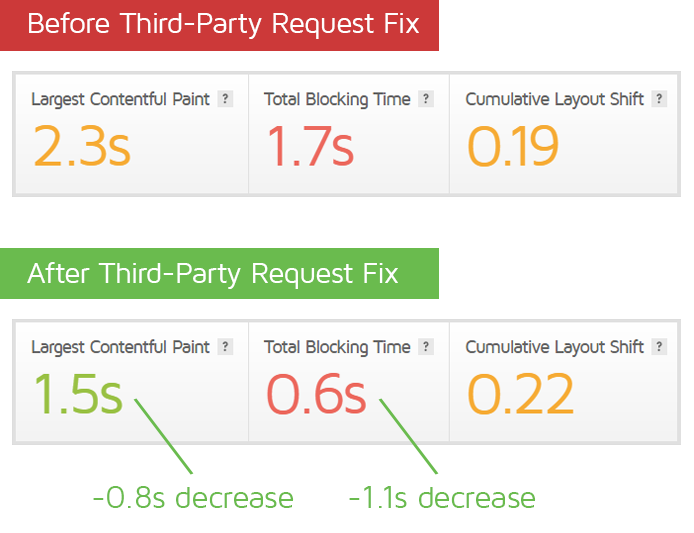
While Cumulative Layout Shift (CLS) increased slightly, it didn’t impact the growth in conversions as you’ll see.
Results
After we fixed the third-party issue and improved LCP and TBT, sales jumped and the client sold out their top products.
We actually needed to pause the ads to the landing page since they were entirely out of stock!
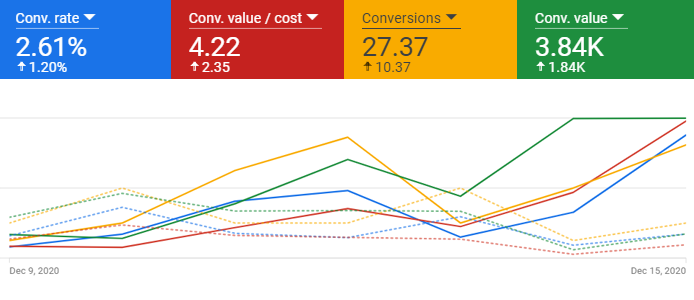
This is just one real-world example of how GTmetrix plays an important role in my business by providing me with fast and effective tools for analyzing website performance.
Takeaways
If you have noticed a sudden drop in your Google Ads conversion rates, you may want to take a look at your site before you start tinkering with your ads.
Services like GTmetrix can provide you with a detailed analysis of your site and provide suggestions to improve speeds. Reducing image sizes and making other changes can improve the user experience, ensure they stay on your site longer, and cultivate meaningful conversions.
Make your website faster today, and increase your conversion rates immediately!


